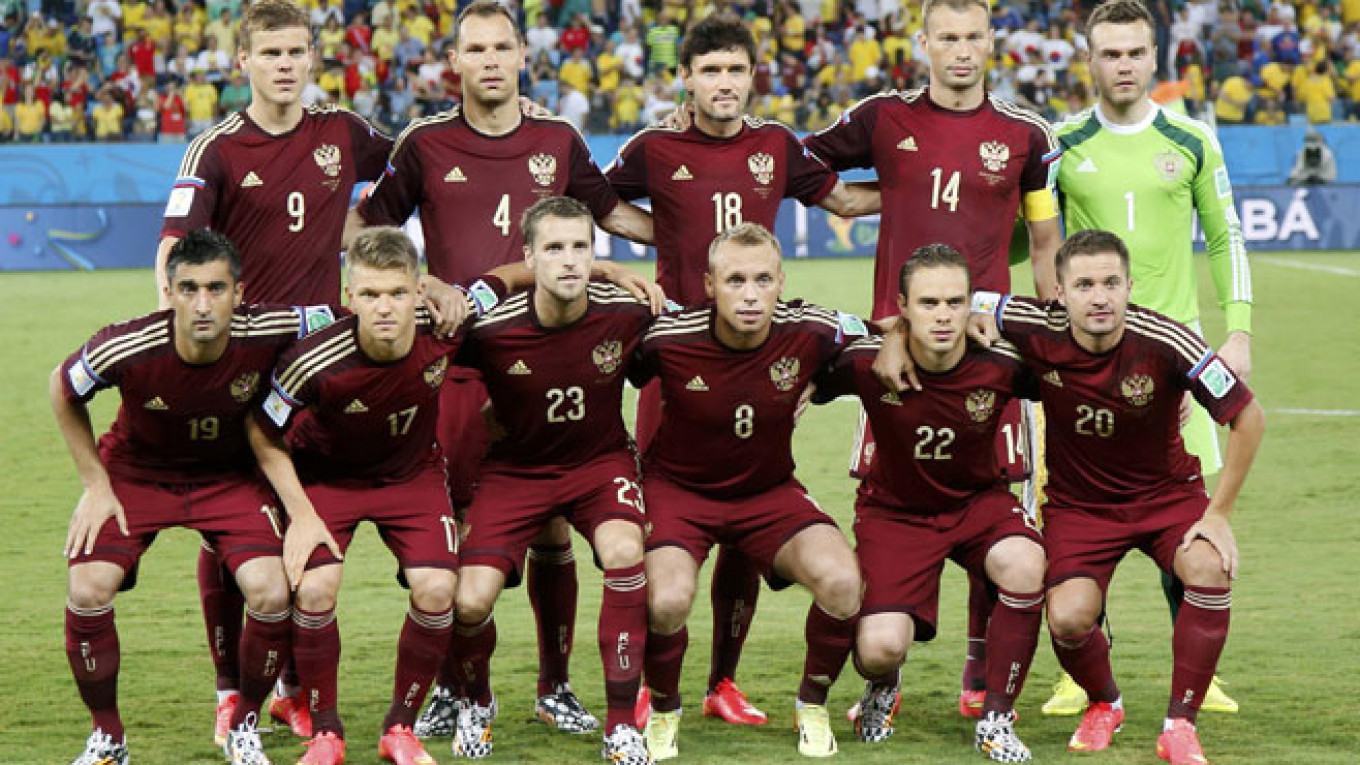In their search for a scapegoat for Team Russia's dismal performance at the World Cup, Russian football fans have focused on two lines in coach Fabio Capello's resumé: nationality and salary requirements.
Capello, 68, is an experienced Italian club team coach, but has had a patchy track record with national teams. He is also the highest paid of all trainers at the World Cup.
The coaches of 15 of the 32 teams playing in the World Cup are not citizens of the nations they are representing. The trainers of six of the remaining eight squads vying for the World Cup title — including Brazil, Germany, Argentina and the Netherlands — were born in the countries they are coaching.
While a variety of factors can influence a squad's performance at the World Cup, in the current tournament, having a native coach appears to contribute to a team's success. This factor, according to Russian football analysts, is even more crucial for Team Russia.
"Russia has its specificities," Yevgeny Lovchev, a Soviet footballer who played in the 1970 World Cup and the 1972 Munich Olympic Games, told The Moscow Times. "Russians have a different mentality. They are not like Europeans. We understand which buttons to press and how people will respond. Foreigners cannot grasp this."
After the Russian men's national hockey team was humiliated on home ice at the Sochi Olympic Games in February, coach Zinetula Bilyaletdinov was sacked. While other national hockey federations — including those of Latvia and Belarus — resorted to foreign coaching expertise long ago, the president of the Russian Hockey Federation insisted that the team's next coach would definitely be homegrown.
But while foreign hockey coaches may be unthinkable in Russia, there have been internationals among the football squad's training staff for nearly a decade. Dutch nationals Guus Hiddink and Dick Advocaat headed Team Russia before Capello.
Unlike hockey, football is not considered innate to Russia, despite the sport's long history in the country, insiders said. The rainfall of petrodollars over the past decade has led to a shift of mentality, boosting the belief that it is more effective to buy advanced technologies from abroad than develop them at home. The world's best football trainers — much like kitchen appliances or leather shoes — come from Europe, and the hiring of Capello is just another example of Russia buying a shiny object from abroad, they said.
"We have everything in Russia," said Gennady Kostylev, a retired Soviet footballer and former coach. "But we think we have nothing, that the things we have are no good, that we lost everything at the end of the Soviet Union. So we go see what they have in the West, in Asia, when we could very well use what we have at home."
Raking in an annual salary of $11,235,210, Capello earns 763 times higher than the average Russian, according to Forbes. The early termination of Capello's contract, which expires in 2018, would cost the Russian Football Federation millions.
The price tag of Team Russia's underachievement has sparked the ire of Russian fans and even politicians. The flamboyant leader of Russia's Liberal Democratic Party, Vladimir Zhirinovsky, accused Capello of being a thief and demanded that he explain his squad's poor performance in front of the State Duma.
For Lovchev, Russia's mismanagement of its domestic coaching and the country's living conditions have contributed to the latest generation of overpaid foreign coaches.
"Russia is not an attractive place to work," he said. "Russia can only attract coaches with heaps of money. The coaches know that there is oil and gas money here. Capello, Hiddink and Advocaat were all relatively old when they signed their contract with Russia, and knew this would be their last big deal."
See also:
Russia Coach Capello to Testify Before Parliament for World Cup Blunder
Contact the author at g.tetraultfarber@imedia.ru
A Message from The Moscow Times:
Dear readers,
We are facing unprecedented challenges. Russia's Prosecutor General's Office has designated The Moscow Times as an "undesirable" organization, criminalizing our work and putting our staff at risk of prosecution. This follows our earlier unjust labeling as a "foreign agent."
These actions are direct attempts to silence independent journalism in Russia. The authorities claim our work "discredits the decisions of the Russian leadership." We see things differently: we strive to provide accurate, unbiased reporting on Russia.
We, the journalists of The Moscow Times, refuse to be silenced. But to continue our work, we need your help.
Your support, no matter how small, makes a world of difference. If you can, please support us monthly starting from just $2. It's quick to set up, and every contribution makes a significant impact.
By supporting The Moscow Times, you're defending open, independent journalism in the face of repression. Thank you for standing with us.
Remind me later.






